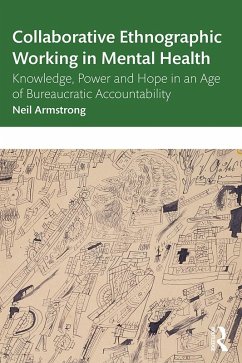Dieser Download kann aus rechtlichen Gründen nur mit Rechnungsadresse in A, B, BG, CY, CZ, D, DK, EW, E, FIN, F, GR, HR, H, IRL, I, LT, L, LR, M, NL, PL, P, R, S, SLO, SK ausgeliefert werden.
"Dr Armstrong's incisive analysis of the mental health system challenges complacent and particularised explanations and presents a mature and systemic account of why mental health systems continue to struggle - harm - fail. Sharing his own lived experience of recovery and evolving agency, we see the demise of well-intentioned and highly trained clinicians to serve the structural and bureaucratic agency of the institution, be that the state, the hospital, the prison and criminal justice system. He does this through the powerful stories and voice of the most afflicted, marginalised, and excluded, providing some seminal lessons for practitioners, policy makers, legislators. Although he brings theory into to the analysis, he does so cautiously, never failing to sketch out the limitations of worshipping theory rather than testing it through real world experience and local realities." -- Professor Kamaldeep Bhui, Professor of Psychiatry and Senior Research Fellow, University of Oxford, UK









